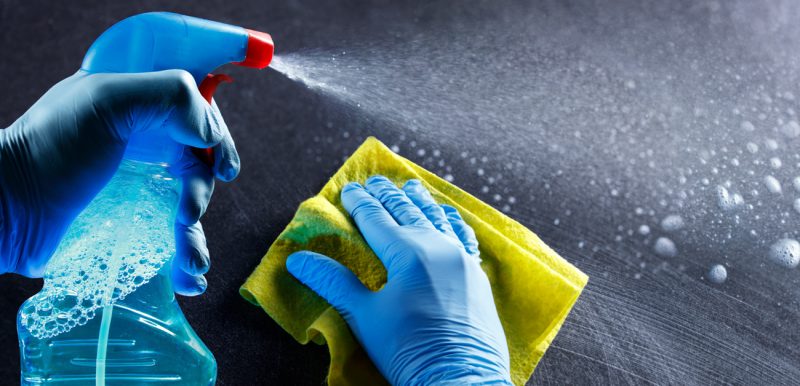Disinfecting took on new prominence in 2020. Keeping bad germs out of your listings and office became critical in the pandemic. Americans learned more about the proper ways to disinfect this year.
For one, cleaning may be what you have traditionally done for prepping listings prior to 2020. Cleaning is all about aesthetics and a home looking spotless and ridding it of dirt. But sanitizing and disinfecting went mainstream in 2020. This is reducing and killing germs. “Sanitizing generally reduces the number of germs on a surface by 99.9 percent or more, whereas disinfecting kills virtually everything,” Apartment Therapy reports.
Apartment Therapy rounded out some of the rules learned about disinfection from a pandemic-filled year, including:
Clean before you disinfect
A disinfectant won’t work on a surface that isn’t cleaned first. “Viruses and bacteria can hide in organic material and dirt lingering on your home’s surfaces, which makes any disinfectant you try to use less effective,” Apartment Therapy notes. “Always use a detergent, like an all-purpose cleaner or soap and water, before using disinfectant.”
Don’t use bleach in a spray bottle
Avoid combining bleach with anything, including a spray bottle, Apartment Therapy warns. It can react with the metal parts of the trigger spray nozzle. It could cause rust and reduce its effectiveness. Instead, when using bleach, use a rag that is saturated with the diluted bleach solution.
70% rubbing alcohol disinfects better than 91%
Rubbing alcohol can be used to kill viruses and bacteria. But don’t assume the higher the percentage, the more effective. “Ninety percent (or higher) alcohol solution can actually be too powerful in some scenarios—like when you’re cleaning food surfaces,” Apartment Therapy reports. “It has to do with the water content, which allows the solution to permeate the bacteria cell wall, and zap the whole thing.”
Wait for contact time
Don’t wipe away disinfectant too quickly after applying it. Disinfectant solutions need to remain on a surface for a specified length of time. This can vary, depending on the product. For example, a surface treated with Clorox Wipes needs to remain visibly wet for four minutes before it’s wiped away in order to work. Check the bottle to see the proper contact time.
Source: “Everything We Learned About Disinfecting in 2020,” Apartment Therapy (Dec. 28, 2020)












